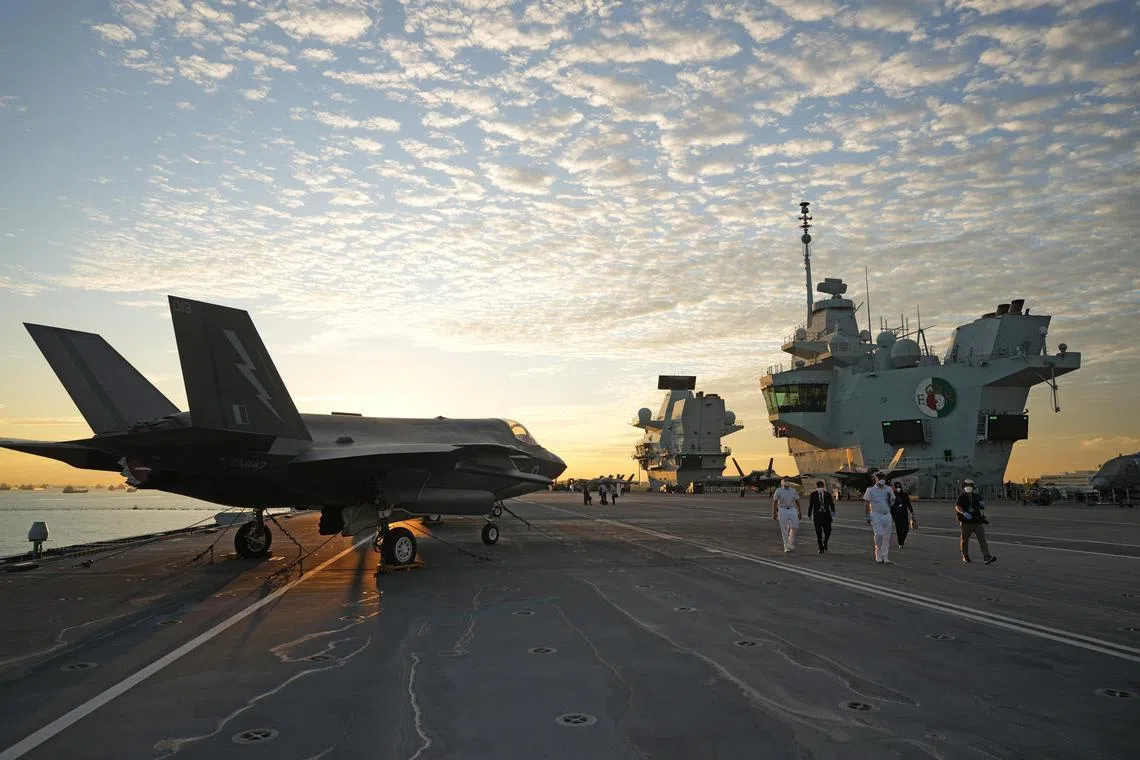Britain’s nuclear deterrent missile system misfires during test: Report
Sign up now: Get ST's newsletters delivered to your inbox

The HMS Queen Elizabeth was withdrawn from the largest Nato exercise since the Cold War due to a propeller issue.
ST FILE PHOTO
Follow topic:
LONDON – Britain’s Trident nuclear missile system misfired during a test in January, when a missile crashed into the ocean near the submarine that launched it, The Sun newspaper reported on Wednesday.
The Sun said the first-stage boosters on the missile, which was equipped with dummy warheads, did not ignite.
The report included a statement from the Ministry of Defence acknowledging an anomaly had occurred during the test.
“As a matter of national security, we cannot provide further information on this. However, we are confident that the anomaly was event specific, and therefore there are no implications for the reliability of the wider Trident missile systems and stockpile,” the ministry said.
“The UK’s nuclear deterrent remains safe, secure and effective.”
The failures of the Trident tests are likely to exacerbate concerns over the readiness of Britain’s navy in the event it is drawn into a full blown conflict.
Britain’s nuclear deterrent is provided by a fleet of four nuclear-powered submarines, which are equipped with the Trident ballistic missile system, manufactured by Lockheed Martin.
According to the Royal Navy website, there has always been a British ballistic missile submarine at sea since 1969, and that “a credible nuclear deterrent depends on the ability to threaten an assured and effective response to aggression”.
The nuclear deterrent system costs around £3 billion (S$5.1 billion) per year to operate - equivalent to roughly 6 per cent of Britain’s overall defence budget.
Parliament voted in 2016 to approve building a new class of submarines, due to enter service in the 2030s, at a cost last estimated at £31 billion.
A previous test of the system in 2016 also ended in failure when a missile was reported to have
veered off course.
Earlier in February, the Royal Navy warfare force had to withdraw the HMS Queen Elizabeth aircraft carrier from the largest Nato exercise since the Cold War after routine checks identified an issue with a coupling on the carrier’s starboard propeller shaft. REUTERS

